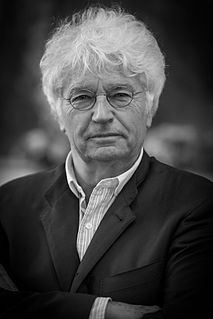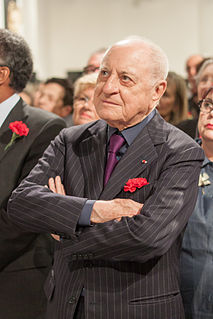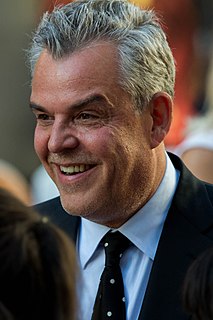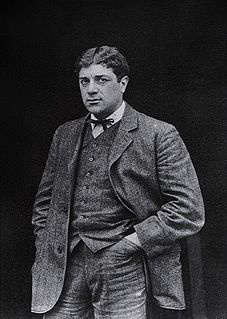A Quote by Slavoj Žižek
A German officer visited Picasso in his Paris studio during the Second World War. There he saw Guernica and, shocked at the modernist «chaos» of the painting, asked Picasso: «Did you do this?» Picasso calmly replied: «No, you did this!»
Related Quotes
A writer has to take all the risks of putting down what he sees. No one can tell him about that. No one can control that reality. It reminds me of something Pablo Picasso was supposed to have said to Gertrude Stein while he was painting her portrait. Gertrude said, “I don’t look like that.” And Picasso replied, “You will.” And he was right.
Look at the paintings of Picasso. He is a great painter, but just a subjective artist. Looking at his paintings, you will start feeling sick, dizzy, something going berserk in your mind. You cannot go on looking at Picasso's painting long enough. You would like to get away, because the painting has not come from a silent being. It has come from a chaos. It is a by product of a nightmare. But ninety-nine percent art belongs to that category.
I carried on buying paintings, works of art, and Yves Saint Laurent, if I may say so, had a right of inspection. We even shared a common reading of the history of art. It would never have crossed Yves's mind to say to me, "Ah, I saw a Pablo Picasso . . ." He knew perfectly well what was interesting with Picasso, as did I.
All of a sudden I got a vision of Guernica - Pablo Picasso's painting, which is one of my all-time favorite paintings in the world. I remember reading that it was very controversial at the time - some people said even used the word "childlike drawing" - and all of a sudden I thought, "This is like Guernica in Los Angeles!" And then it all made sense to me. It was all the elements that are the Southland.









































